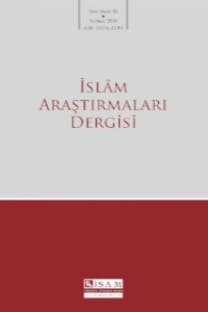The criteria of ta'zir
The criteria of ta'zir
This paper aims to display that the ta‘zýr punishment in Islamic law is not subject to a limitless and arbitrary discretion; on the contrary, the use of the discretional power is limited with certain principles. There are firmly established rules for ta‘zýr punishments in terms of their aims, types, quantity/duration, conditions of execution, executors, evidence, and so on. So, the discretional power left to the qadýs or legal authorities mostly pertains to the choice of the proper type of punishment and proper quantity/duration that best serve the aim. However, throughout the Islamic history there have been faqýhs in every madhhab that, considering the principle of maslahah, i.e., public good, gave qadýs a broad discretional power and those that rejected the validity of certain types of ta‘zýr punishments such as death penalty and fines.
___
- ISSN: 1301-3289
- Yayın Aralığı: Yılda 2 Sayı
- Başlangıç: 1997
- Yayıncı: TDV İslâm Araştırmaları Merkezi
Sayıdaki Diğer Makaleler
The problem of ta'hir al-bayan in islamic law
